Impulse control disorder is a set of psychiatric disorders that usually occur between the ages of 7 and 15. These disorders are a part of the obsessive-compulsive disorder spectrum. People affected by these disorders usually have problems resisting the urge to do something that is harmful for them or for the others. The ability to control impulses or primitive urges is actually what marks human psychological maturity and distinguishes humans from the other living animal species.
The impulsiveness characteristic for these disorders, usually appear as seeking a small and short-term gain at the expense of a large long-term loss. People affected by this disorder demonstrate failure to resist their behavioral impulsiveness.
The Impulse Control Disorder Mechanism
People who are having problems controlling their impulses usually do not think about their actions and consequences of the actions before they act. An individual with impulse control disorder usually feels the increasing tension or arousal before committing the act that is considered as a manifestation of the disorder. During the act, the individual will feel pleasure, gratification and relief, but after the act is committed, the person will usually start blaming himself or feeling regret or guilt. The key feature is that affected persons do not plan their acts, but they fulfill their instant conscious wishes. For many of the sufferers, these disorders are a very hard burden that makes them really stressed and makes them feel like they have lost control over their lives.
Which Disorders Qualify as Impulse Control Disorders?
Impulse control disorders include all kinds of addictions, physical and psychological dependence on different substances such as addiction to alcohol and drugs, eating disorders, compulsive gambling, sexual fantasies and behaviors involving non-human objects, kleptomania, pyromania, suffering, humiliation of children, compulsive hair pulling, stealing, fire setting and intermittent explosive attacks of rage.
Among the most widespread impulse control disorders is onychophagia, or compulsive nail biting. Nail biting affects around 30% of children between 7 to 10 years and 45% of teenagers. What actually differs impulse control disorders from similar disorders is that the difficulty controlling impulses is the primary feature of the disorder. Conditions such as ADHD or bipolar disorder may also have associations with difficulty controlling impulses, but it is not their main problem.
Causes of Impulse Control Disorders
There is no definite answer to the question what causes impulse control disorders. However, certain factors including biological, emotional and cultural factors may contribute to the behavioral impulsiveness. Hormones associated with violence and aggression, such as testosterone, could also play a role in the disorders.
Drugs for Treating Impulse Control Disorders
- ICDs, however, have the following features in common: (1) repetitive or compulsive engagement in a behavior despite adverse consequences; (2) diminished control over the problematic behavior; (3) an appetitive urge or craving state prior to engagement in the problematic behavior; and (4) a hedonic quality during the performance of the problematic behavior.
- Although far from conclusive, the limited data from antidepressant trials for ICDs provide some important clinical and research directions: (1) serotonergic antidepressants may be useful for some of the ICDs; (2) not all serotonergic medications may be equally efficacious; (3) trials need to be longer due to the high placebo response in individuals with ICDs; and (4) a specific treatment may be beneficial for some individuals with certain ICDs but the treatment may not be broadly effective for everyone with a specific ICD diagnosis.
- The data regarding mood stabilizer or anti-epileptic medications in the treatment of ICDs is far too limited to make any useful clinical conclusions. Not all medications in this category have the same pharmacological mechanism and these medications have been tested in only a few of the ICDs. The studies do however demonstrate that classifying subtypes of individuals with ICDs based on perceived pathophysiologies (e.g., gamblers with co-occurring bipolar spectrum disorders or pathological pickers with specific cognitive deficits) may allow for more targeted and more effective pharmacotherapies.
- The data regarding the use of opioid antagonists for pathological gambling are persuasive and provide the strongest evidence of any medication for the treatment of ICDs. There have been four positive studies and one negative study, although the negative study used dosing of naltrexone which was lower than previously reported in the successful trials. These studies may suggest that dosing of the opioid antagonist may be important for successful clinical outcome.
- The data regarding the use of atypical antipsychotic treatment for pathological gambling strongly suggest that these medications provide no benefit. The data for trichotillomania, however, are very persuasive although it was a very small study. The questions remains whether different atypical antipsychotics may produce different results in ICDs. Given the side effect profile of these medications, however, they should be used with caution and with monitoring of potential health-related side effects.



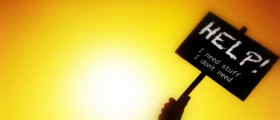
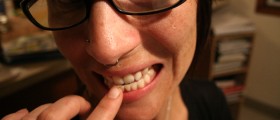
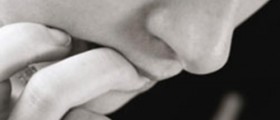
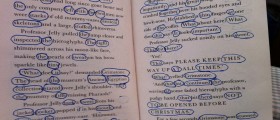
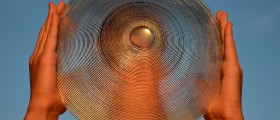

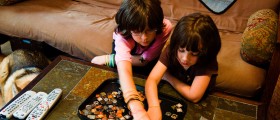
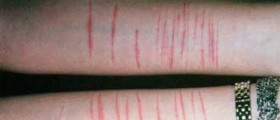



-Causes,-Symptoms,-Diagnosis-And-Treatment_f_280x120.jpg)


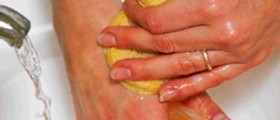
Your thoughts on this
Loading...